One day after a harvest, they laid down their tools and never returned.
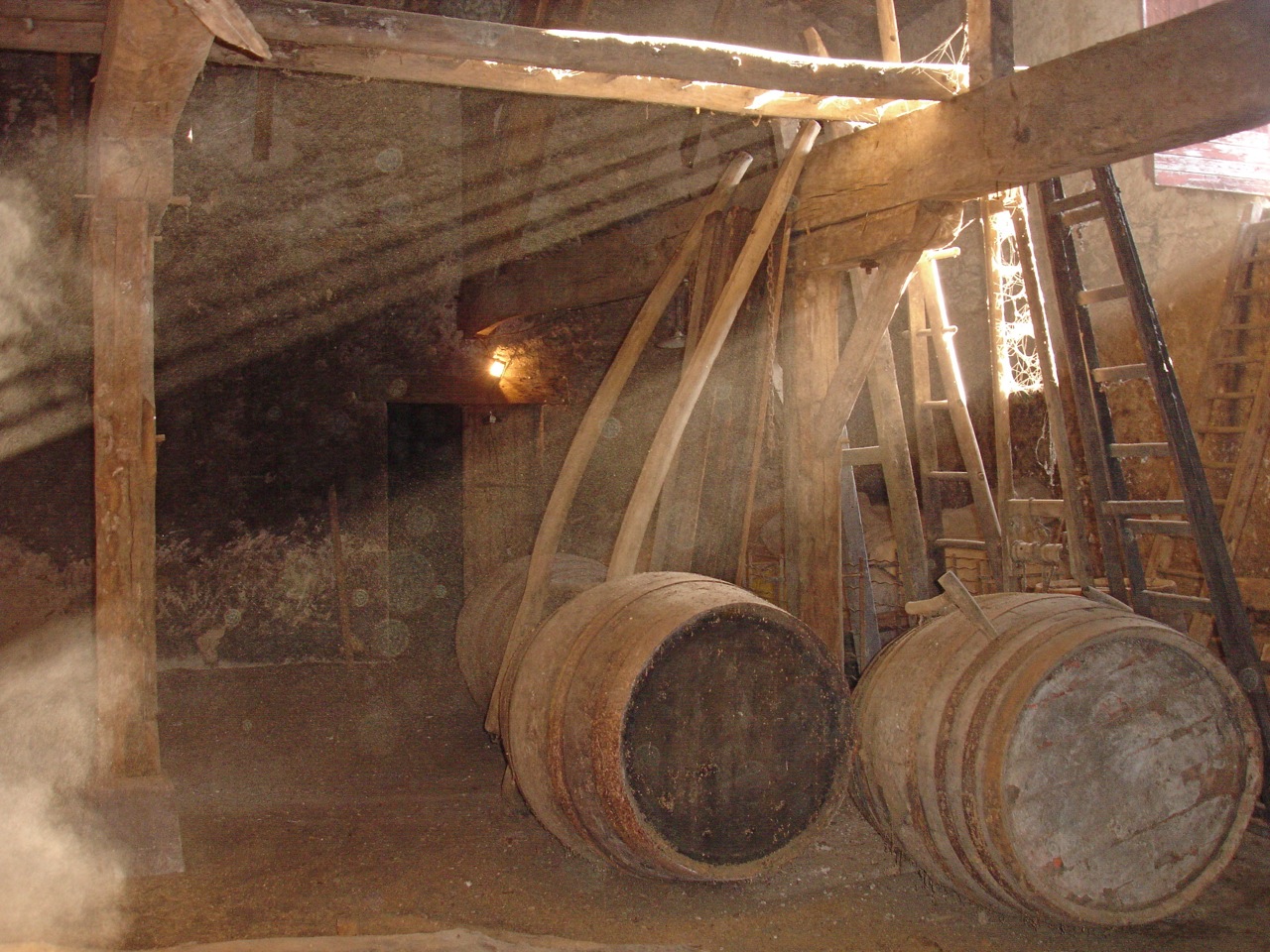
Entering the old winery always makes me think of stepping into the home of an aged and accomplished man, the last of his line, who has had a heart attack in the middle of a solitary dinner. A neighbor locks up the house, leaving everything as it was: clothes hanging on hooks, shoes by the bed, wine glass and bottle on the table. Closed up in the dark, preserved in dust.
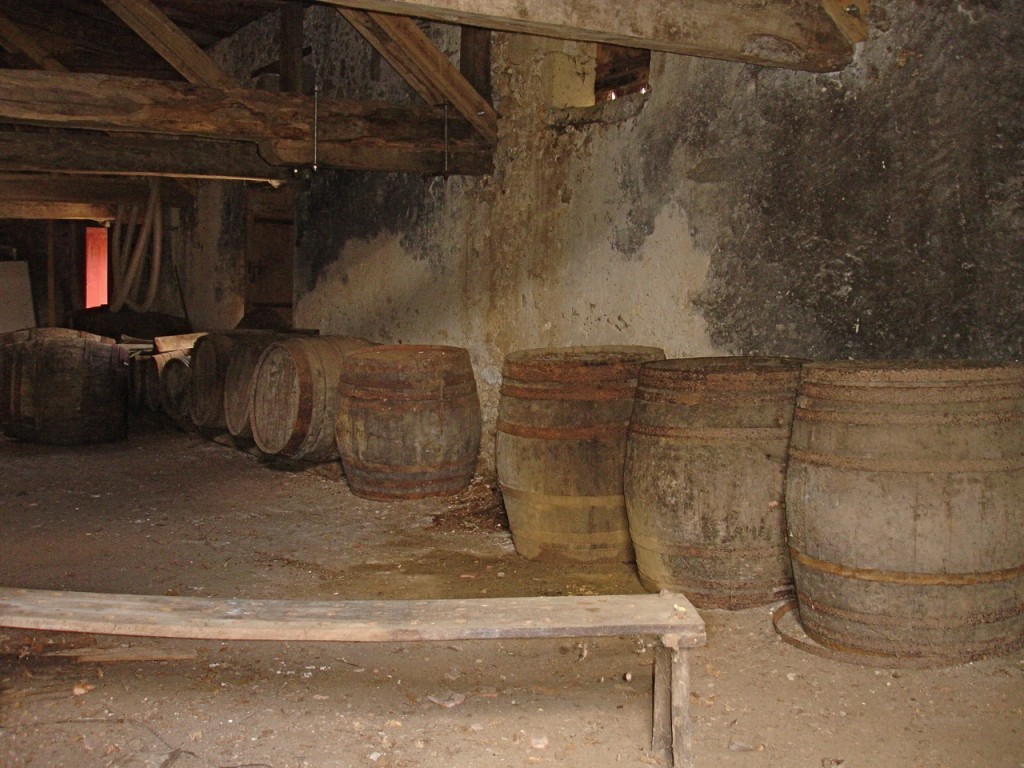
The old winery had become a sort of no man’s land, more like a haunted house with every year that passed. Cool darkness, never completely opened, lots of creepy crawlies. Hardly interesting when you could saunter instead over to the swimming pool and choose sunshine with a gin and tonic under the magnolia trees.
But eventually the big cleanup couldn’t be put off. Some worker’s apprentice had dumped a bunch of rotten beams from a replaced porch and we had to remove them before they rooted with mushrooms. On a bright day we opened every window and that’s when we found it all, hidden behind junk stored there for decades.
Their farm implements lay just where they’d left them. Built to use with horses, from the days before tractors. A one-sided plough for turning over the earth delicately at the base of the vines – so worn and thin the blades fell apart. The iron pump and sulfateuse turned green from spraying copper sulfate – the rubber hoses fragmented under our fingers. Barrels and barrels, mostly rotten, a few still intact, marked with the name of the owner and the year 1868. Instruments for rolling barrels, instruments for lifting them. Rows and rows of bottles with wine sediment dried at the bottom, corks disintegrated.
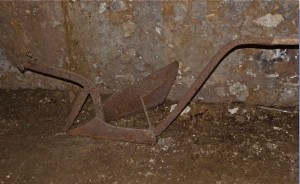
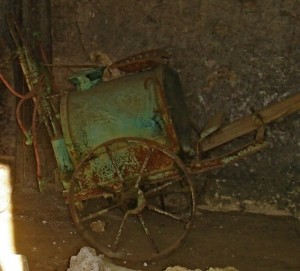
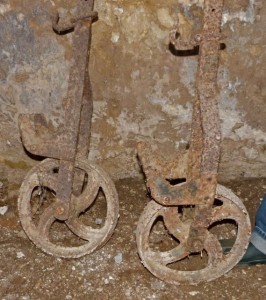
As we cleared, we could see that nothing much had changed in the receiving rooms for 80 years. The whites came in through the large windows on the lowest level and poured right into the central press. The reds were delivered through a door on the upper level (the chai is built into the side of a hill, the old fashioned technique for maintaining a stable temperature in all seasons) and flowed down into four gigantic holding tanks. These huge sentinels and the press are too large to be moved. They were constructed inside the room.
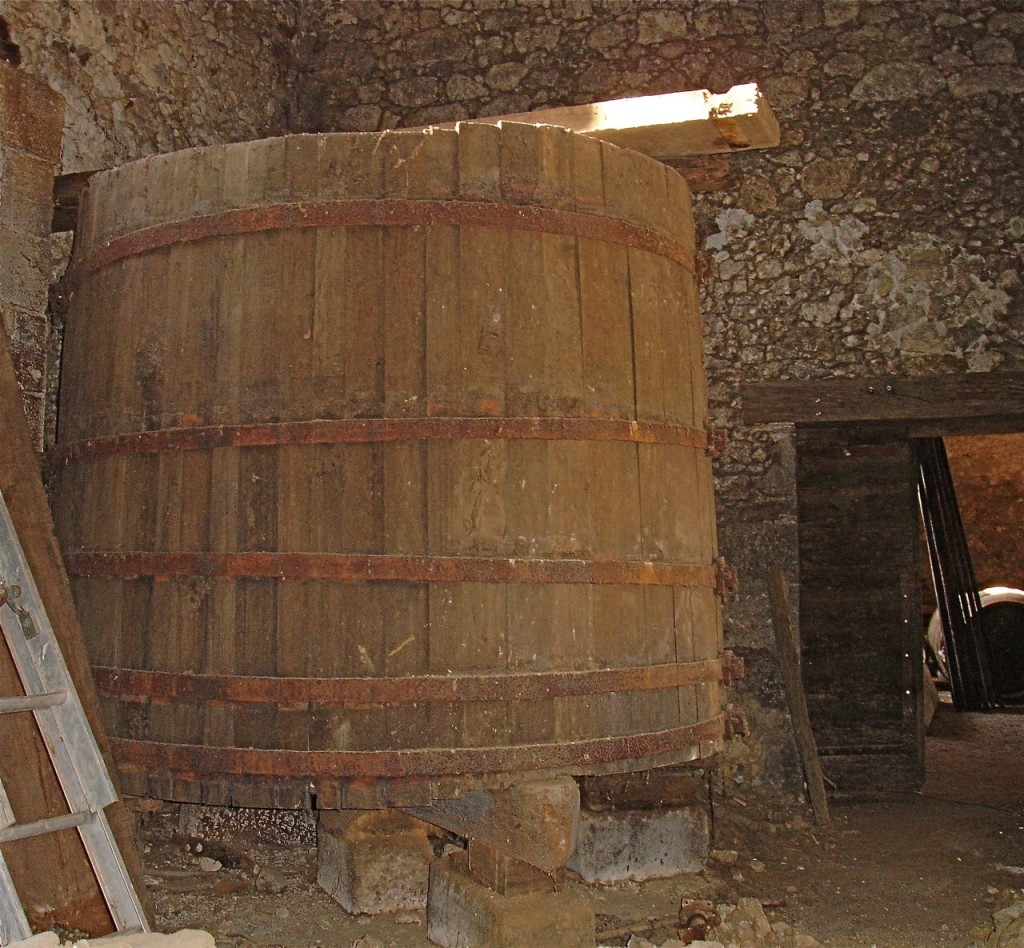
And beyond, the Great “barrel” Room. I look up at the massive wood beam, vaulted ceiling stretched over this enormous space, and I’m in a cathedral. A testament to rural architecture in the 1700’s. Perfectly intact, they understood oak would resist just about anything. The barrels were stored here for aging until they were rolled outside and slid down the riverbank for their journey to the port of Bordeaux and then on to Paris and London. The English were excellent clients, loving their red Bordeaux which they called “claret.”
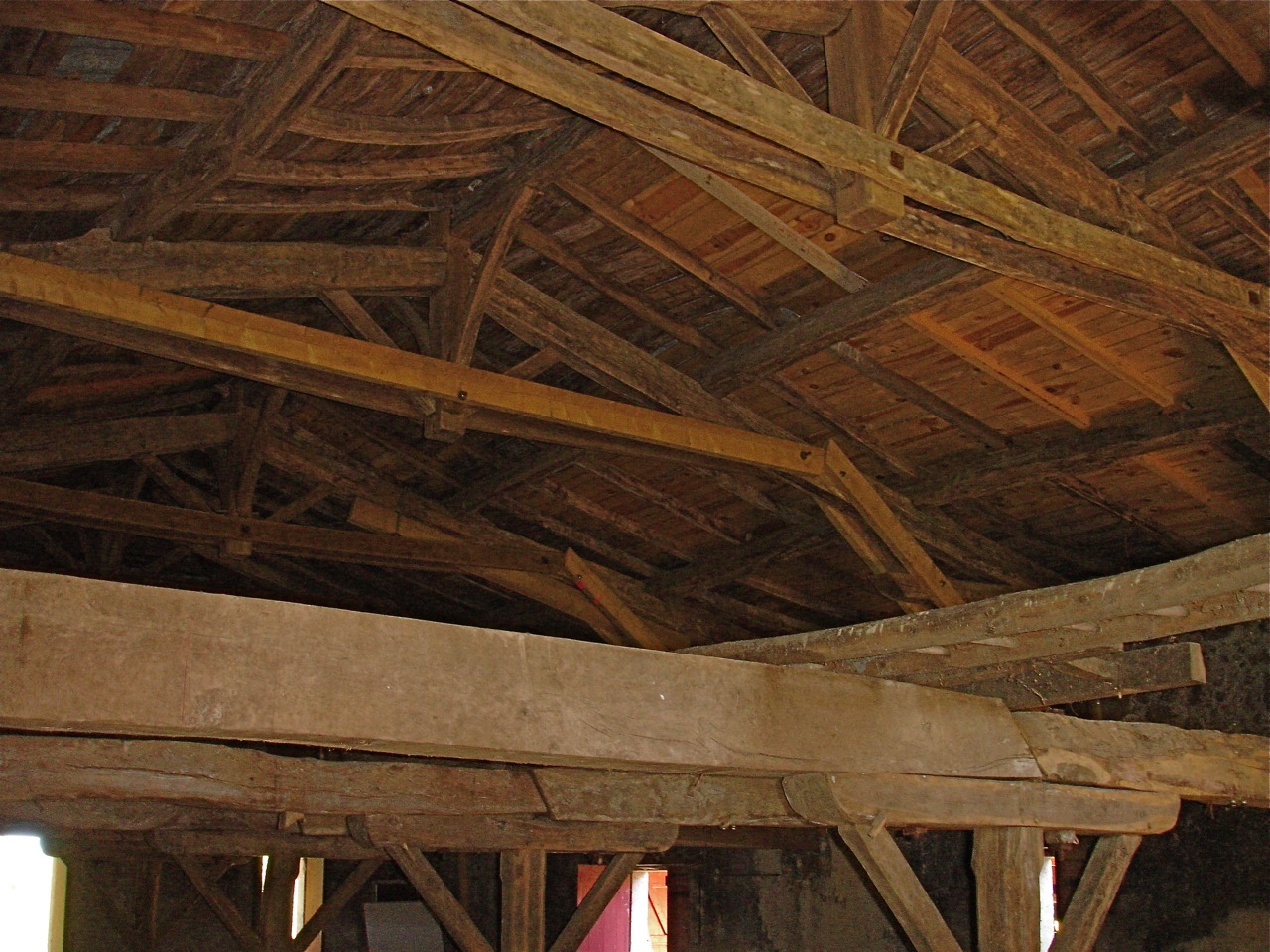
The boys took sledgehammers to the rotten wood and rusted iron and made endless wheelbarrow excursions. John split our eardrums with his chain saw. We breathed in sawdust and coughed out dust.
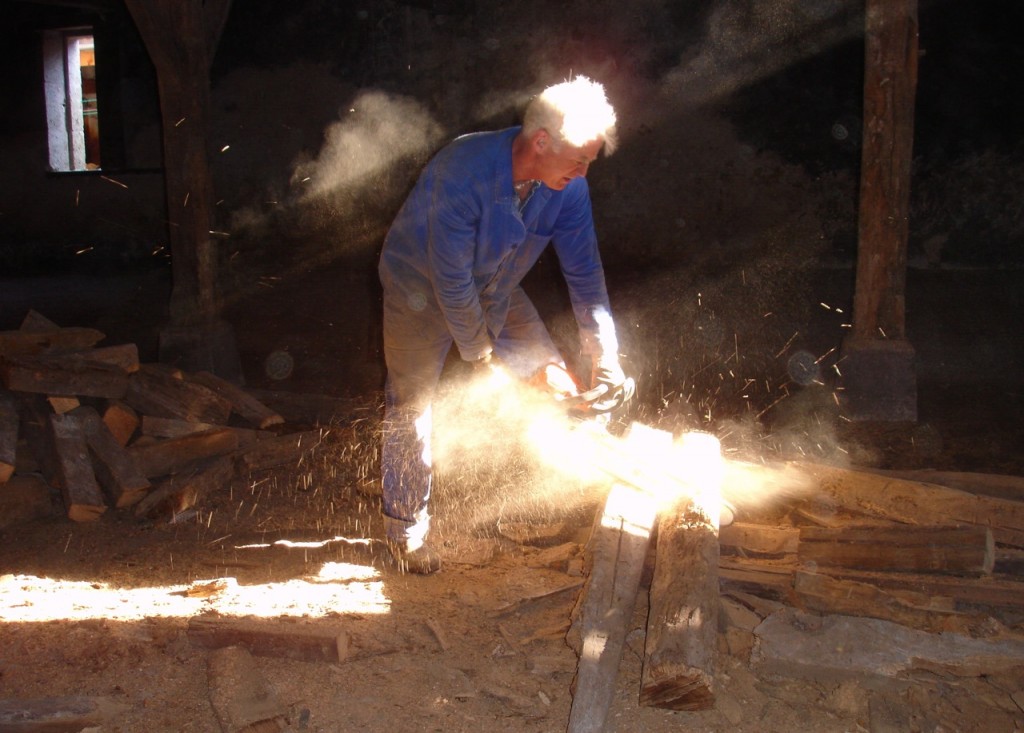
As we uncovered relics next to junk, it all filled me with an uneasy sense of impropriety, like being part of a grave robbers’ band at midnight in the cemetery. This had been a fruitful work site for centuries. How many generations had earned their daily bread laboring here?
After the cull, the place looked as reasonably tidy as an old dirt floor site could look, but something was wrong. I couldn’t shake the feeling we had disturbed some resting presence. Where would they go now?
That night I tossed and turned. I recalled my friend Cassandra who had listened unsympathetically when I once told her I wanted to throw a huge party, but was waiting for a reason to celebrate. I wanted a perfect opportunity to pull out our double-fisted copper champagne cooler and buy myself a dark blue satin evening gown. She told me her father once said something like that – just before he suddenly passed away.
I needn’t have wondered where the ghosts would go, they streamed in direct for a dream session: It was the night of The Party. We dressed up the chai in finery, hired two bands, laid a dance floor, hung twinkling lights and garlands of flowers. White linen, the best silver, copper champagne coolers on every table. A buffet sagging under the weight of the region’s specialties and endless wine gushing from spigots right out of the barrels. Everyone we loved came. To cool off from all the dancing, we set up a platform at the upper level river side, where the barrels used to exit. Here a hostess took our champagne glass and off we glided down an aqua slide, landing with a splash in the river below. Another hostess on the riverbank offered a dry evening gown or tuxedo, and another glass of champagne. A look up at the stars in the diamond studded sky, and then we waltzed back inside to dance some more. I wore a dozen blue satin dresses that night.
Today in the daylight, the Old Chai still looks like an old chai. The old presses are still there, frozen by rust and time. The ceiling upholds the space with dignity. I go in for routine inspections, and note the spiders get right back to work as soon as I close the door. Tiny Cassandra stitches. They are so quick to sew their shrouds.
The ghosts have left me in peace since I bought the satin dress. I have a feeling they followed their rusting tools to a new life in a new place.
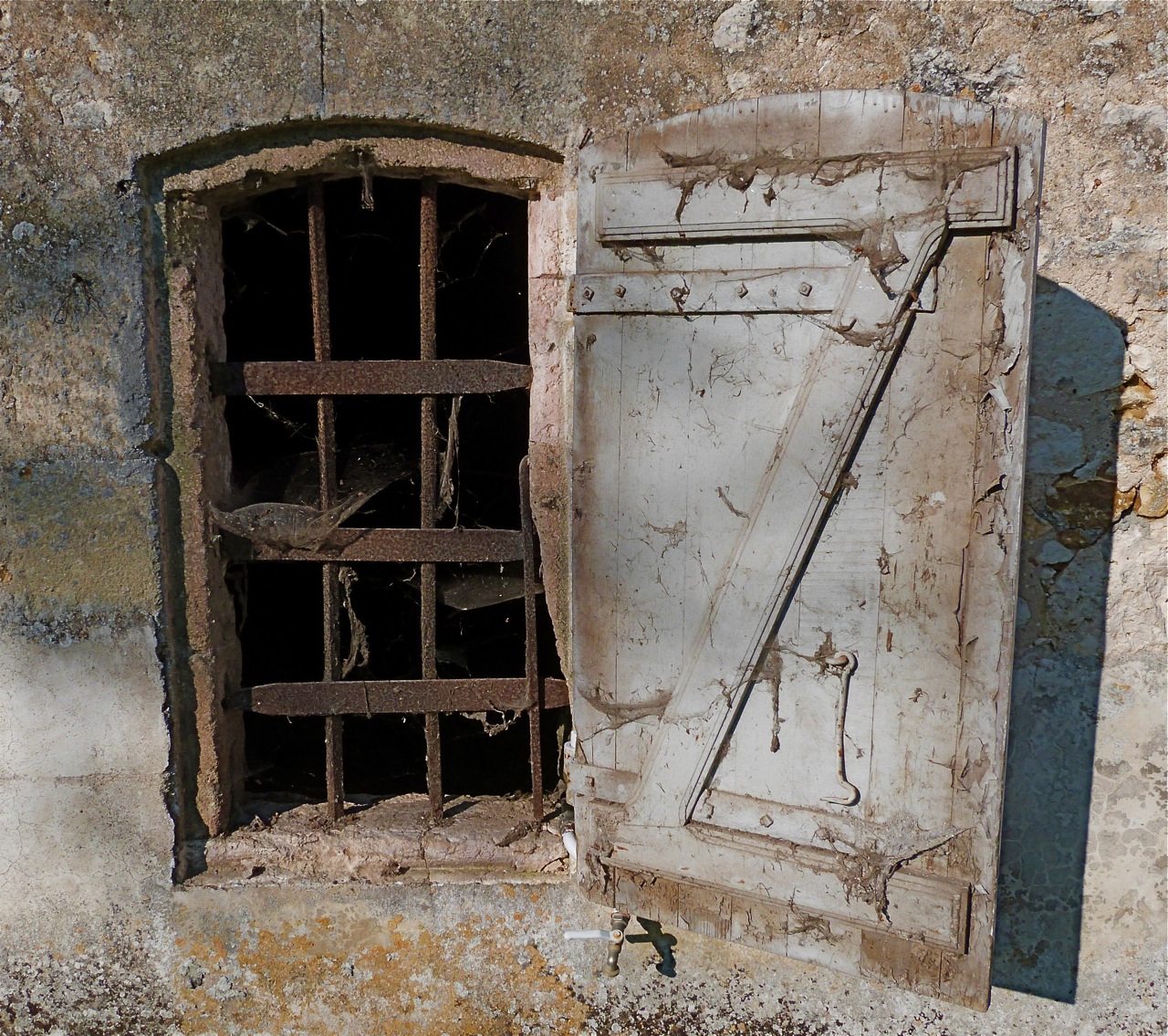
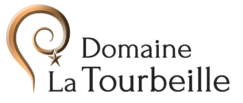

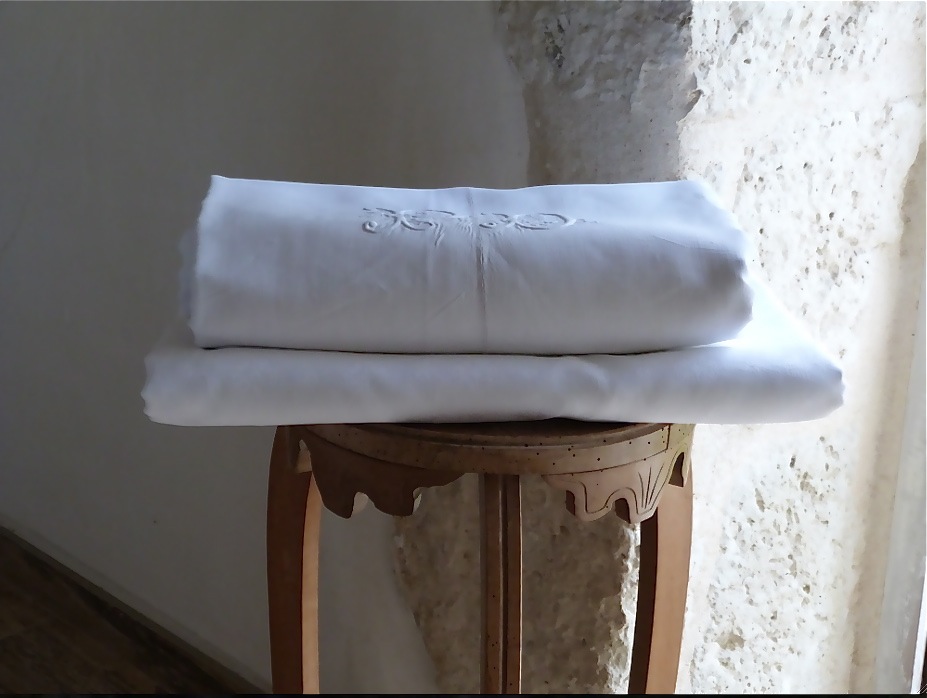
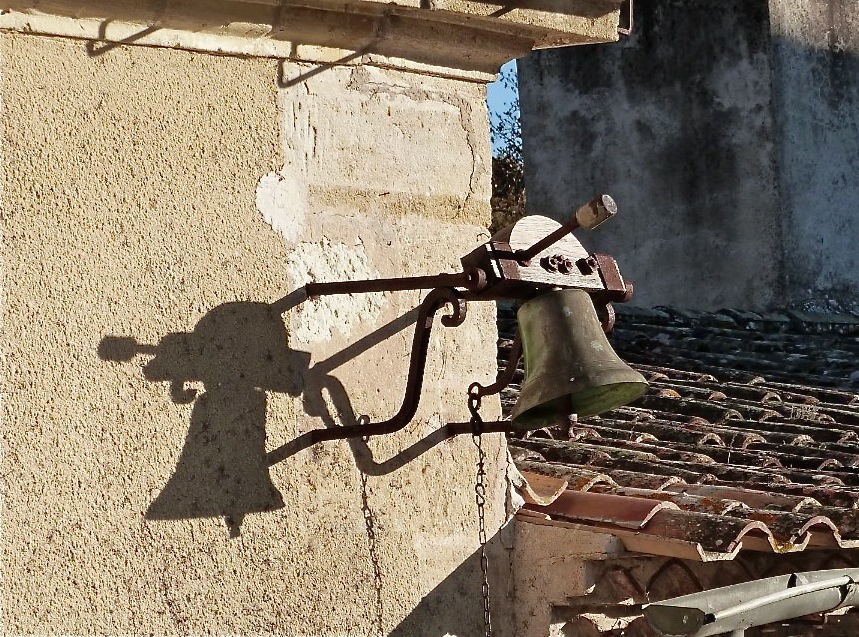
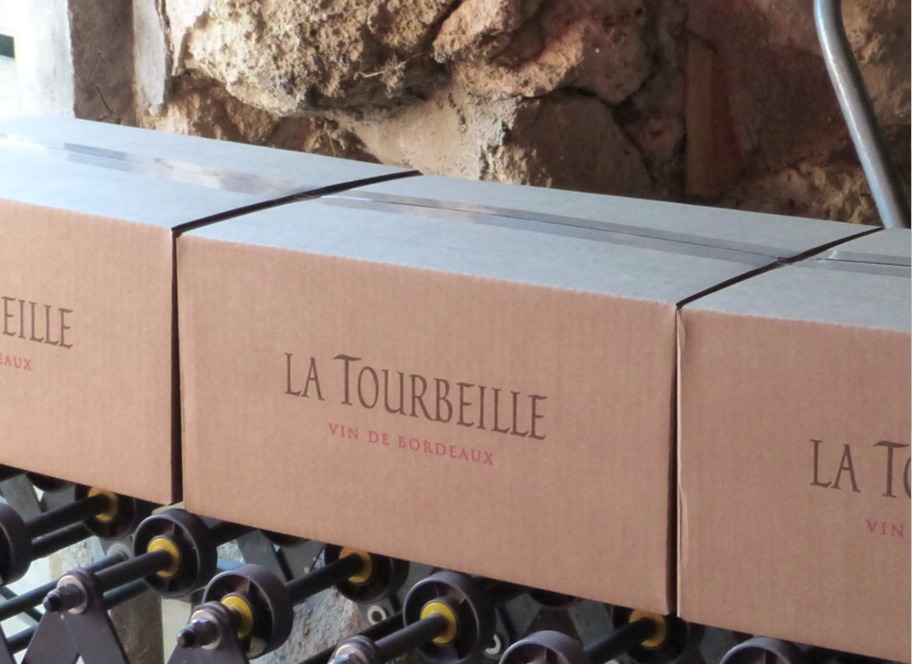
3 thoughts on “Ghosts of the Old Winery”
Mary, you have resurrected time itself . . . and awakened a cherished memory of being in the chai last May with you and John — caught in the wonder of days gone by, when laborers rolled wine barrels down the hillside to the river. The memory of dust-covered farm equipment inscribed with the McCormick name — no longer a grade school history lesson but a reality: “Cyrus McCormick of Virginia was responsible for liberating farm workers from hours of back-breaking labor by introducing the farmers to his newly invented mechanical reaper in July, 1831. By 1847, Cyrus McCormick began the mass manufacture of his reaper in a Chicago factory” — thanks to a quick google search
I was totally mesmerized both by the “tale” and the photos. Thank you so much for both. Flo
Hello Mary! I’m so glad Claire sent me the link to your blog. Gorgeous photographs, beautiful words. Keep them coming.